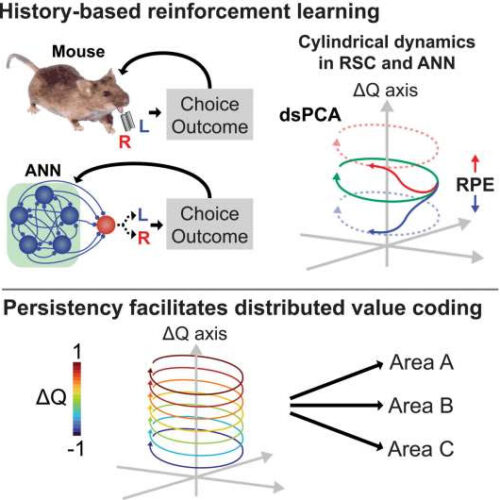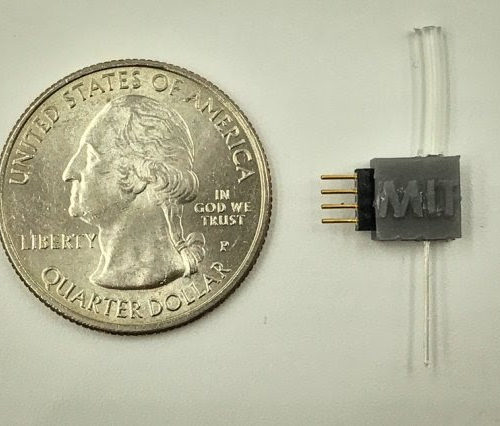by Mario Aguilera, University of California – San Diego A new study is showing how value choices are recorded in our brains. Researchers found that persistency allows value signals to be most effectively represented, or “coded,” across different areas of the brain, especially in a critical area within the cerebrum known as the retrosplenial cortex. Credit:...
Tag: <span>neurobiology</span>
Mapping the brain’s sensory gatekeeper
by Massachusetts Institute of Technology Many people with autism experience sensory hypersensitivity, attention deficits, and sleep disruption. One brain region that has been implicated in these symptoms is the thalamic reticular nucleus (TRN), which is believed to act as a gatekeeper for sensory information flowing to the cortex. A team of researchers from MIT and...
Producing a gaseous messenger molecule inside the body, on demand
Method could shed light on nitric oxide’s role in the neural, circulatory, and immune systems. Nitric oxide is an important signaling molecule in the body, with a role in building nervous system connections that contribute to learning and memory. It also functions as a messenger in the cardiovascular and immune systems. But it has been...
Eyes send an unexpected signal to the brain
The eyes have a surprise. For decades, biology textbooks have stated that eyes communicate with the brain exclusively through one type of signaling pathway. But a new discovery shows that some retinal neurons take a road less traveled. New research, led by Northwestern University, has found that a subset of retinal neurons sends inhibitory signals...
Brain-Computer Interface Lets Man with Complete Spinal Cord Injury Feel and Move His Hand
Spinal cord injuries can leave people paralyzed and without a sense of touch in much of the body. While there’s been a tremendous amount of work in the past decade to overcome paralysis by using brain-computer interfaces to bypass damaged spinal cords, providing a sense of touch is a necessity for truly proper treatment. As...
Growing up high: Neurobiological consequences of adolescent cannabis use
About one in five Canadian adolescents uses cannabis (19% of Canadians aged 15-19), and its recent legalization across the country warrants investigation into the consequence of this use on the developing brain. Adolescence is associated with the maturation of cognitive functions, such as working memory, decision-making, and impulsivity control. This is a highly vulnerable period for the development of...
Can a nerve injury trigger ALS?
UNIVERSITY OF ILLINOIS AT CHICAGO A growing collection of anecdotal stories raises the possibility that nerve injury in an arm or a leg can act as a trigger for the development amyotrophic lateral sclerosis, or ALS — a progressive neurodegenerative disease also known as Lou Gehrig’s disease, named after the famous New York Yankee who...
Absentmindedness points to earlier warning signs of silent strokes among people at risk
Adults who notice that they frequently lose their train of thought or often become sidetracked may in fact be displaying earlier symptoms of cerebral small vessel disease, otherwise known as a “silent stroke,” suggests a recent study. Image: A diagram of a brain with cerebral small vessel disease, otherwise known as silent stroke. Credit: Provided...
Thriving on teamwork: New research shows how brain cells filter information in groups
When we perceive the world around us, certain objects appear to be more noticeable than others, depending on what we do. For example, when we view a forest-covered mountain from a distance, the forest looks like a large green carpet. But as we get closer, we start noticing the individual trees, and the forest fades...
Autism is associated with zinc deficiency in early development — now a study links the two
Researchers have discovered a mechanistic link between zinc, autism risk genes and abnormal neuronal connections associated with autism spectrum disorders FRONTIERS The emergence of autism in children has not only been linked to genes encoding synaptic proteins – among others – but also environmental insults such as zinc deficiency. Although it is unclear whether zinc deficiency...
- 1
- 2



